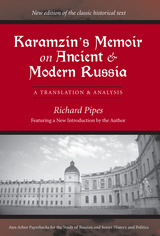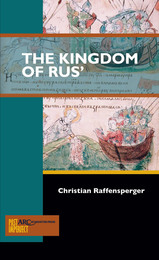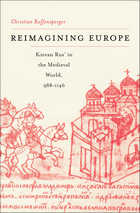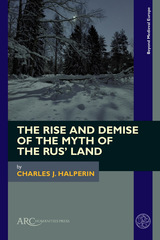
Russian history was typically studied through liberal or socialist lenses until Richard Pipes first published his translation of Karamzin's Memoir. Almost fifty years later, it is still the only English-language edition of this classic work. Still fresh and readable today, the Memoir-in which Alexander I's state historian elaborates his arguments for a strong Russian state-remains the most accessible introduction to the conservatism of Russia's ancien regime. This annotated translation is a "faithful rendition of the letter and spirit of the original," which not only introduces readers to the sweep of Karamzin's ideas, but also weaves together a fascinating version of Russia's rich history. With a new foreword by Richard Pipes, Karamzin's Memoir on Ancient and Modern Russia is a touchstone for anyone interested in Russia's fascinating and turbulent past.
Richard Pipes is Baird Professor of History at Harvard University.
Nikolai M. Karamzin (1766-1826) was a Russian historian, poet, and journalist. He was appointed court historian by Tsar Alexander I.



An overriding assumption has long directed scholarship in both European and Slavic history: that Kievan Rus' in the tenth through twelfth centuries was part of a Byzantine commonwealth separate from Europe. Christian Raffensperger refutes this conception and offers a new frame for two hundred years of history, one in which Rus' is understood as part of medieval Europe and East is not so neatly divided from West.
With the aid of Latin sources, the author brings to light the considerable political, religious, marital, and economic ties among European kingdoms, including Rus', restoring a historical record rendered blank by Russian monastic chroniclers as well as modern scholars ideologically motivated to build barriers between East and West. Further, Raffensperger revises the concept of a Byzantine commonwealth that stood in opposition to Europe-and under which Rus' was subsumed-toward that of a Byzantine Ideal esteemed and emulated by all the states of Europe. In this new context, appropriation of Byzantine customs, law, coinage, art, and architecture in both Rus' and Europe can be understood as an attempt to gain legitimacy and prestige by association with the surviving remnant of the Roman Empire. Reimagining Europe initiates an expansion of history that is sure to challenge ideas of Russian exceptionalism and influence the course of European medieval studies.


The warp and weft of political and social relationships among the medieval elite were formed by marriages made between royal families. Ties of Kinship establishes a new standard for tracking the dynastic marriages of the ruling family of Rus´—the descendants of Volodimer (Volodimeroviči). Utilizing a modern scholarly approach and a broad range of primary sources from inside and outside Rus´, Christian Raffensperger has created a fully realized picture of the Volodimeroviči from the tenth through the twelfth centuries and the first comprehensive, scholarly treatment of the subject in English.
Alongside more than twenty-two genealogical charts with accompanying bibliographic information, this work presents an analysis of the Volodimeroviči dynastic marriages with modern interpretations and historical contextualization that highlights the importance of Rus´ in a medieval European framework. This study will be used by Slavists, Byzantinists, and West European medievalists as the new baseline for research on the Volodimeroviči and their complex web of relationships with the world beyond.
READERS
Browse our collection.
PUBLISHERS
See BiblioVault's publisher services.
STUDENT SERVICES
Files for college accessibility offices.
UChicago Accessibility Resources
home | accessibility | search | about | contact us
BiblioVault ® 2001 - 2024
The University of Chicago Press









